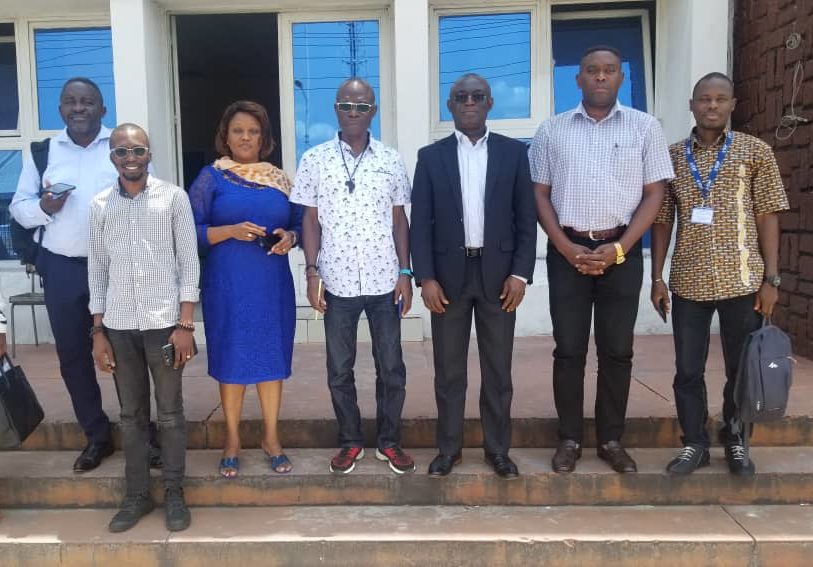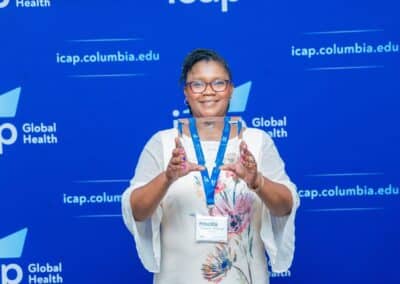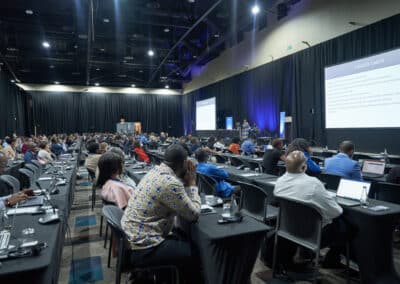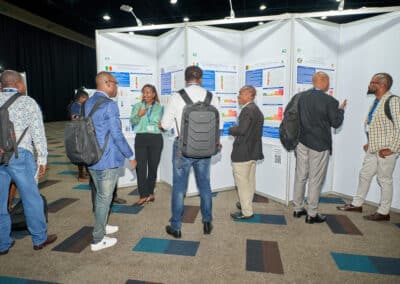The Democratic Republic of Congo (DRC) is one of the newest members of the CQUIN learning network. In February 2020, DRC hosted Dr. Peter Preko, CQUIN project director, as he made a baseline visit to meet with key stakeholders, including the Ministry of Health, the national network of people living with HIV, the U.S. Centers for Disease Control and Prevention (CDC), and Cordaid, the Global Fund’s principal recipient, to understand national priorities for implementing Differentiated Service Delivery (DSD) The trip also included a visit to the ICAP country office and site visits to observe DSD implementation at the health facility level. “The baseline visit is a way to learn more about national DSD programs, and to support the stakeholder self-staging process by using the CQUIN DSD dashboard to help identify priority activities, including those that might be supported by PEPFAR in COP20, and in the next round of Global Fund applications,” Preko said. “DSD is not new to DRC—in fact, DRC has been an innovator in the field. Increased standardization will help the country scale up some of its tools and DSD models.”
The Agenda
According to Preko, baseline visits usually have three objectives. Each visit is an opportunity to:
- Introduce CQUIN to the country’s stakeholders.
- Identify critical DSD stakeholders and understand the country’s status with regards to DSD policy, guidelines, community engagement, and progress towards scaling up DSD implementation.
- Identify best practices, lessons, and challenges to inform areas for collaboration, learning exchange, and technical assistance.
Mobile Apps for Community-Led DSD Monitoring
At a meeting with Union Congolaise des Organisations des Personnes vivant avec le VIH (UCOP-Plus), DRC’s national network of people living with HIV, Preko observed that UCOP-Plus is monitoring the quality of DSD implementation at health facilities with a mobile app. With support from the Global Fund, members from UCOP-Plus developed a mobile phone app, which they take to health care facilities to evaluate services received. The mobile app survey has a series of ten questions. Questions include how often patients visit health care centers for antiretroviral therapy, the kind of services they receive, whether the facilities are charging user fees, and the amount, and whether recipients of care have experienced drug stockouts. Recipients of care also answer questions on distance traveled to the health facility, questions about wait times, TB screening, receiving information on viral load monitoring, and satisfaction with the quality of services received overall. UCOP-Plus and the health facilities use feedback from the survey to improve any gaps in HIV care, knowledge, and service delivery. There is also an annual dissemination meeting where stakeholders use the information from the mobile app survey to update their data collection tools. “This is the first community observatory I have seen that is being led by the national network of positives itself,” Preko said about UCOP-Plus. “They have managed to sensitize the health facilities and national key stakeholders such that the health facilities are fully cooperating and collaborating with them.
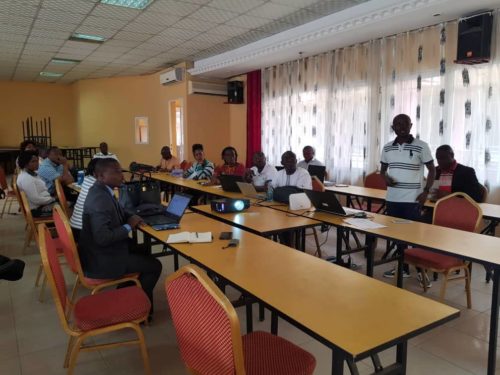
Country stakeholders developing DSD dashboard
New and Promising
Even though DRC is new to CQUIN, Preko believes the country already has a strong position in its implementation of DSD. “They are far ahead,” he noted, observing that the country has implemented community-based DSD models that are fully managed by the recipients of care themselves and that DRC also has three-month refills as a standard of care and aims to introduce six-month, multi-month scripting (MMS) in the future. According to Preko, stakeholders in DRC have identified key priorities, including the need to update the national DSD operational guide, ensure availability and use of DSD standard operating procedures, adopt and scale up DSD for adolescents living with HIV, and ensure that all health facilities use standardized, updated M&E tools to comprehensively capture relevant DSD data.


